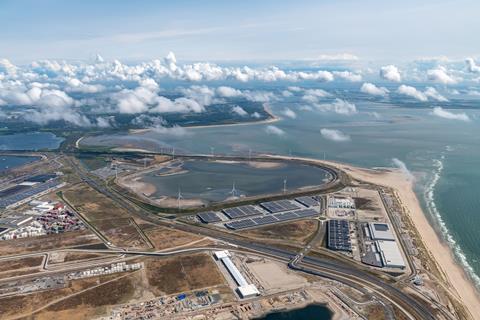In the first nine months of 2023, both the port of Rotterdam and the port of Antwerp-Bruges recorded a drop of 9 percent in terms of throughput compared to the same period in 2022. Both gateways attribute the declining volumes to continued economic instability.

For Rotterdam this resulted in 329.9 million tonnes being handled, compared to 351 million tonnes in 2022, and in Antwerp-Bruges throughput stood at 204.4 million tonnes.
The decline, the Port of Rotterdam said, was mainly related to the throughput of containers and coal. Throughput of iron ore and scrap, agricultural bulk and LNG increased. The drop in the total throughput volume is the direct consequence of limited growth in the global economy and geopolitical tensions, which are driving falling world trade volumes and lower industrial production, the port added.
“Global demand for freight is still lower than in 2022 as a result of inflation, limited economic growth, geopolitical tensions and higher spending on services rather than products,” the port of Rotterdam explained. “This has a knock-on effect on the throughput of containers in Rotterdam. The container segment saw a decline of 8.1 percent in weight and 7.2 percent in the number of containers (teu) in the first nine months. The transhipment volumes increased by 8.1 percent in the third quarter of 2023.”
Ro-ro traffic declined by 3.8 percent and other general cargo by 13.7 percent as a result of reduced consumer spending, large stocks and lower investments. The total throughput in the breakbulk segment therefore fell by 6 percent.
Meanwhile, the port of Antwerp-Bruges said: “The still unstable geopolitical and economic conditions are negatively impacting demand for container traffic around the world, while the picture is still mixed for other cargo flows.”
It added: “The Eurozone economy is under pressure from interest rates, which have risen sharply. Despite the drop in energy prices, the global economic situation also remains volatile and future indicators point to a continued economic downturn. As a result of this uncertain economic climate, containerised trade flows are falling around the world. For the port of Antwerp-Bruges, this is reflected in a 6.5 percent drop in container throughput in terms of tonnage, and 6.8 percent in teus, compared to the same period in 2022.”
Conventional breakbulk, meanwhile, is holding up relatively well in Antwerp-Bruges despite the weak economic climate, with throughput volumes in line with the pre-covid period. Compared to the same period in 2022, which was marked by a strong post-covid recovery, throughput is down 18.6 percent. Due to a drop in European steel production and lower demand, throughput of steel, the main commodity group within this segment, is down 17.6 percent.
Despite the decline in container throughput, the port of Antwerp-Bruges said that its market share in the Hamburg - Le Havre range grew by 1 percent, to 30.6 percent in the first half of this year.
















